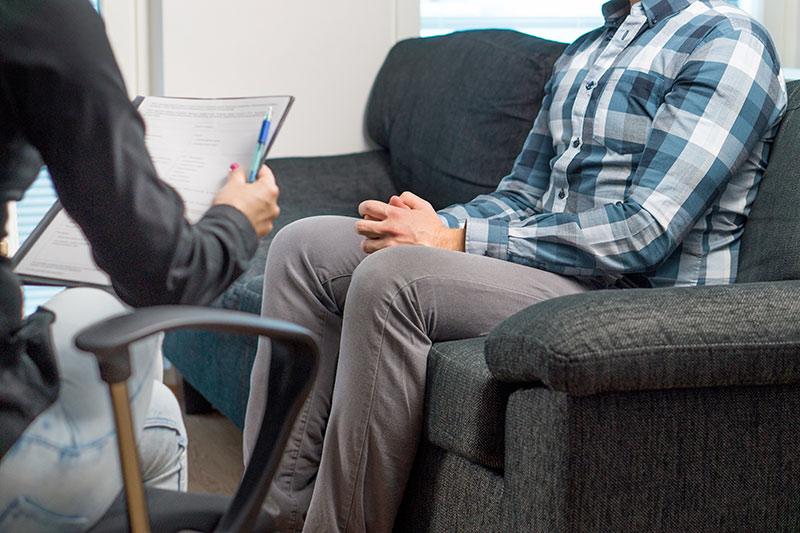Tulane social workers provide counseling in wake of hotel collapse
When the under-construction Hard Rock Hotel on Canal Street collapsed the morning of Oct. 12, New Orleans city officials quickly realized that, in addition to those who were injured or lost their lives, this was a traumatic experience for loved ones, first responders, co-workers and displaced residents.
They wasted no time in contacting the Tulane Office of Emergency Preparedness and Response to request counseling support. Tulane’s emergency preparedness team then reached out to the Tulane School of Social Work, and soon, Crystal Broussard, a licensed social worker and clinical assistant professor, was at a nearby location, the New Orleans Public Library, helping those affected process what happened.
“They are experiencing normal emotional and physical reactions to this event,” Broussard said.
“First responders are trained to turn their emotions off so that they can do their jobs. When they let their guard down, that’s when they will start to feel the impact on their mental health."
Parker Sternbergh, social worker at the Tulane School of Social Work
These experiences include sleep and appetite disturbances, difficulty concentrating and making decisions, challenges communicating their emotions, hyper-vigilance and fear and survivor’s guilt, according to Broussard.
“Some of them have said they find themselves just stopping and staring off into space, which is a normal reaction to something like this,” she said.
“We are helping them through active listening, processing of the event, processing what they feel now, normalizing what they are experiencing, helping them recognize the support systems they have in family relationships or churches, educating them on warning signs in themselves and others, and connecting them with other mental health resources.”
Parker Sternbergh, also a licensed social worker and director of the school’s Porter-Cason Institute for the Family and the Center for Lifelong Learning, said overcoming such a traumatic event will not happen overnight.
“First responders are trained to turn their emotions off so that they can do their jobs,” she said. “When they let their guard down, that’s when they will start to feel the impact on their mental health. Connecting with their families is important to processing the event. Over long periods of time, they will need to be mindfully managing what they’ve experienced.”
Broussard and Sternbergh said they are pleased that the city reached out to the School of Social Work, which will support counseling services as long as they are needed. They said faculty knowledge and research in trauma as well as its commitment to educating students through its Disaster and Collective Trauma Certification program makes it a logical choice to provide help.
“Due to the expertise of its staff and faculty and proximity to the site, Tulane is well positioned professionally and logistically to support the mental health of those affected,” Sternbergh said. “When mental health professionals are available, people will take advantage of the opportunity to seek help and talk to someone.”

